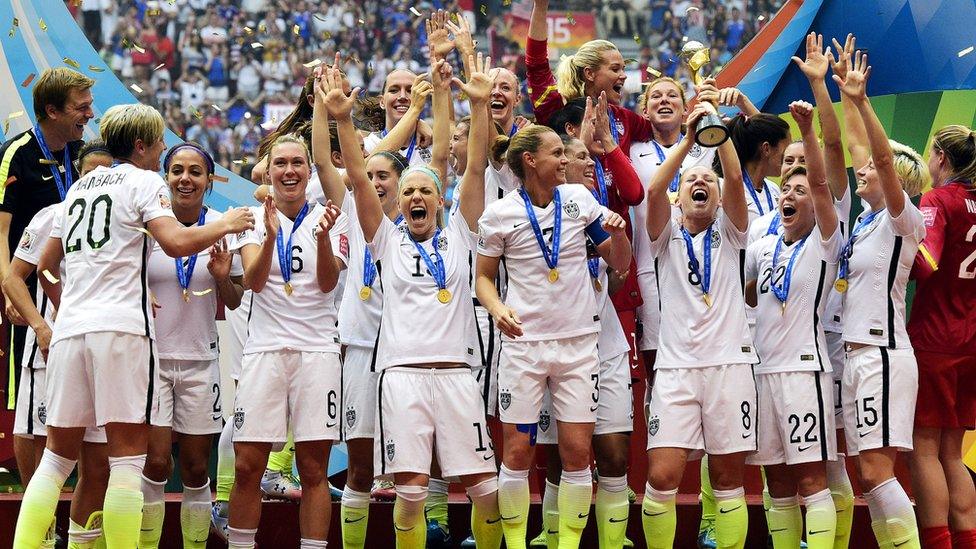Football: US women's team cannot strike, judge rules
- Published

US women footballers have dominated the international game in recent decades, winning a string of titles
A judge has ruled that the world champion US women's football team does not have the right to strike.
Female players had been considering striking in an effort to address wage discrimination.
The US Soccer Federation sued the players' union to prevent a strike that could have caused the team to miss the summer Olympics.
The judge ruled the players are not eligible to strike because of a provision in an earlier contract.
In March, five players filed a lawsuit with the Equal Employment Opportunity Commission alleging pay discrimination. They argued female players were sometimes paid four times less than their male counterparts despite holding the world title.
The players' union had not called a strike over the issue, but had been weighing the possibility.
The US Soccer Federation - the sport's national governing body- filed its own suit to prevent a strike. It argued a no-strike clause from an early collective bargaining agreement carried over to the 2013 memorandum of understanding that the players are currently working under.
The union argued that a no-strike clause had never been specifically laid out in the terms of the latest agreement.
However, the judge sided with the federation citing oral and email communication between the two sides, as evidence that the original terms were passed to the new agreement.
"A collective bargaining agreement may be partly or wholly oral and a written collective bargaining agreement may be orally modified," Judge Sharon Johnson Coleman wrote in her ruling.
The team is expected to perform well at the Olympic Games in Rio and the federation said it feared a strike would damage the development of football in US.
The players, many of whom have expressed outrage at gender pay differences, will continue their wage discrimination case.
- Published31 March 2016